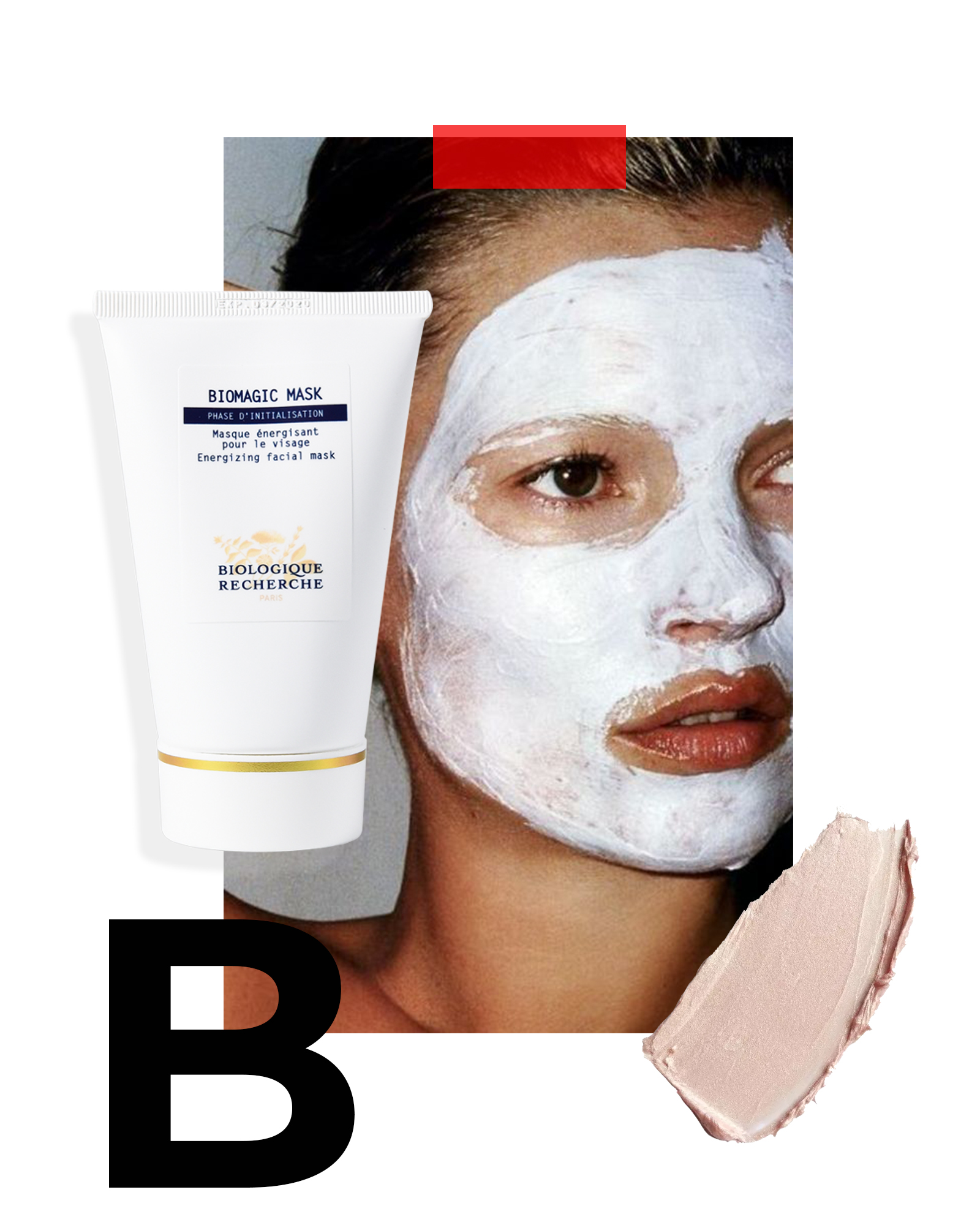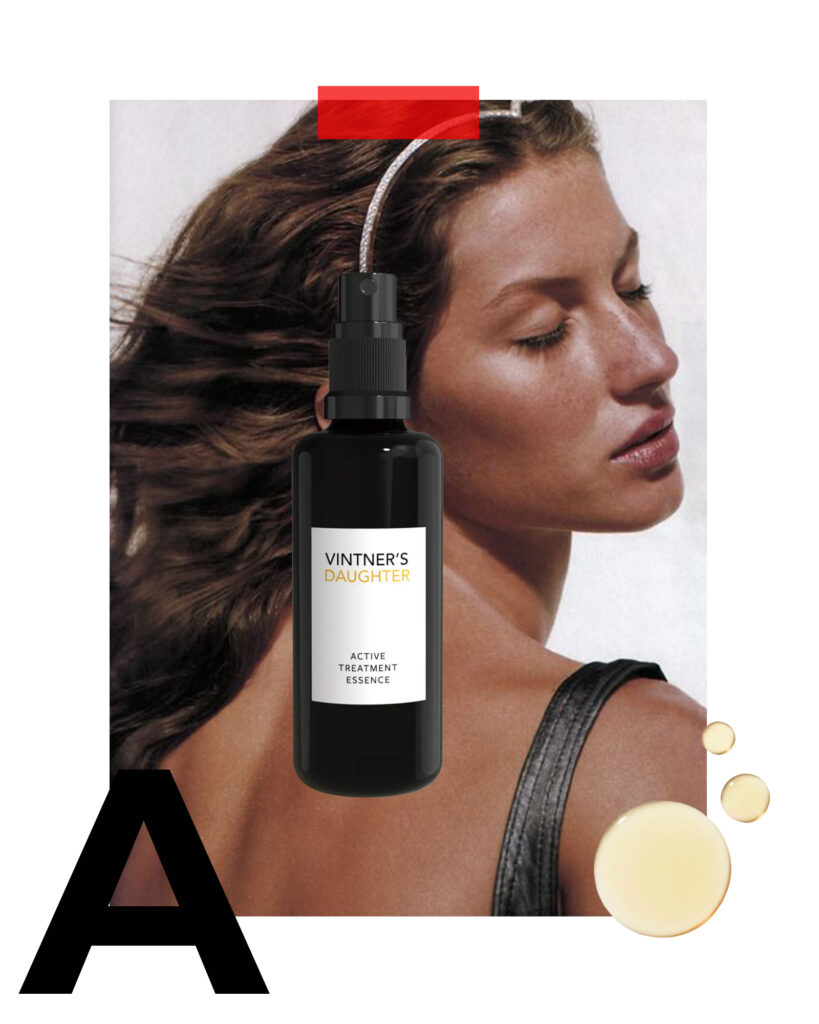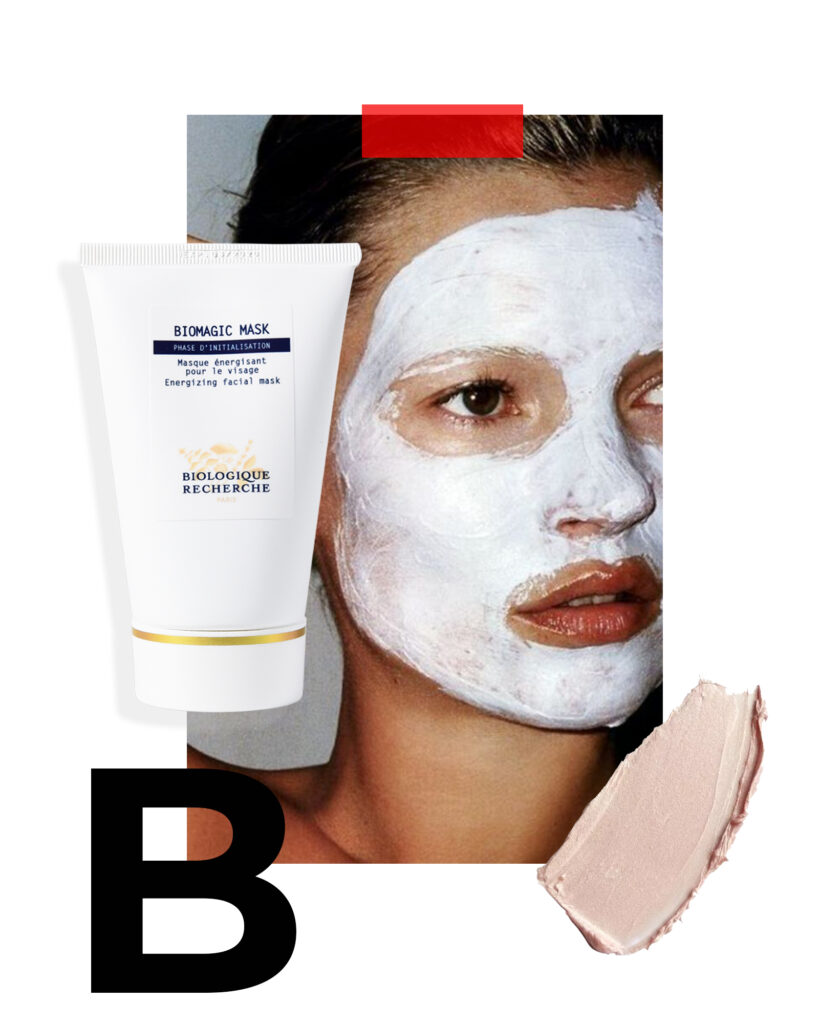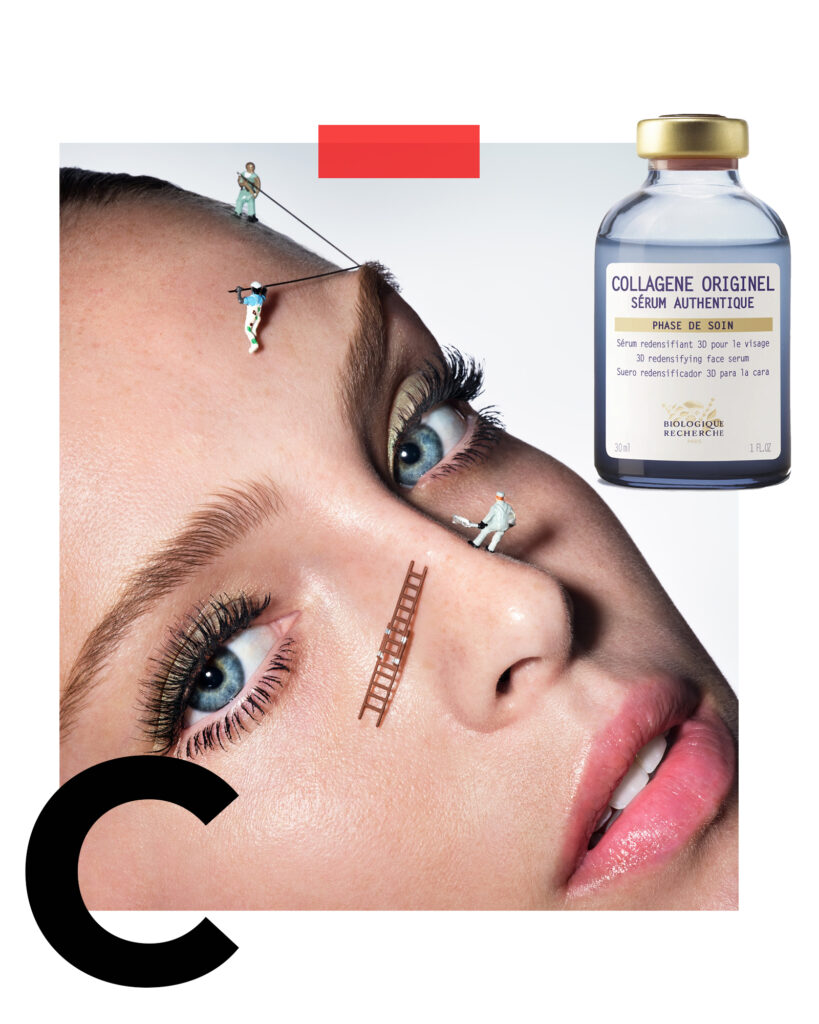Bellis Perennis (Daisy Flower Extract)
WHAT IT DOES:
Containing L-arbutin, Daisy flower extract is a compound best known for helping with existing pigmentation problems. L-arbutin helps to lighten skin, which in turn allows it to fight away pigmentation.
HOW IT WORKS:
L-arbutin helps lightens the skin by interfering with pathways that lead to the formation of melanin or pigment, which colour our skin and create pigmentation.
MG SAYS:
Daisy flower extract is a natural melanocyte blocker that works to inhibit the development of pigment irregularities in the skin. It effectively lightens and brightens existing dark and sallow patches of skin and has been used for cosmetic and medicinal purposes since the ancient Egyptians.
Bentonite
WHAT IT DOES:
Great for masking, Bentonite is a powerful detoxifying ingredient which helps draw out impurities from the skin. It can help remove make-up, oil and excess cell build up, revealing clarified and clear skin. It has light exfoliating properties which help buff out the skin’s surface, encouraging cell turnover.
HOW IT WORKS:
As an absorbent, Bentonite works best when mixed with water. In its clay form, Bentonite helps draw out chemicals from the skin, including metals and pollution which might be sitting beneath the skin’s top layer. It helps promote cell turnover and when removed, leaves the skin feeling soft and supple.
MG SAYS:
Bentonite clay attracts toxins and pulls them from the body. It is especially useful in masks for congested skin and those who have been exposed to pollution via air travel and urban living. It is best not to let clay-based masks fully dry on the complexion — mist with a little water or essence if the mask dries out to quickly upon application, and remove before it is fully dried.
Beta Glucan (Oats)
WHAT IT DOES:
Beta glucans are fantastic for calming and healing the skin, and can help alleviate signs of redness. Perfect for sensitive skin and easily sourced from the kitchen, the Beta glucans found in oats provide an effective way to soothe and protect sensitive skin.
HOW IT WORKS:
High in antioxidants and with free radical-neutralising powers, Beta glucans can help prevent further cell damage by inhibiting oxidative stress. Plus, their soothing properties provide moisture for damaged skin and help minimise redness and inflammation.
MG SAYS:
Beta glucan has an impressive absorption rate considering its larger molecular size. Beta glucans are not naturally produced by the body — they are derived from grain bran and plant cellulose. They are essential for modulating the immune function of the skin and for its ability to fight off pathogens. Beta glucan also offers antioxidant properties and is especially useful for soothing and calming the skin when used in conjunction with traditional retinols.
Bisabolol
WHAT IT DOES:
Extracted from the chamomile flower, Bisabolol is a popular soothing ingredient, helping the skin hydrate and heal.
HOW IT WORKS:
Antimicrobials within Bisabolol can help kill bacteria, which in turn help stop breakouts. In tandem, and thanks to its panthenol concentration, Bisabolol can help with healing and hydration, stimulating the skin’s own healing response for faster cell turnover.
MG SAYS:
Bisabolol is the main component in chamomile essential oil and presents as a more concentrated form of pure chamomile extract. It is often used in formulating products like creams and serums due to its ability to boost the absorption rates of other ingredients. This wonderful healing agent also works to moisturise, soften pigment and act as an antimicrobial agent.
Bromelain
WHAT IT DOES:
A super gentle exfoliant, Bromelain buffs away dead skin cells in a wonderful alternative to more intense acids.
HOW IT WORKS:
As an enzyme, not an acid, Bromelain is a gentle exfoliant which can help remove excess oil and dirt build up in the skin, turning over clearer, fresher skin.
MG SAYS:
Bromelain is actually an enzyme derived from pineapple. It is effective at digesting dead skin and also boasts beneficial antioxidant properties. It contains soothing and anti-inflammatory properties, making it a suitable exfoliant for sensitised or post-procedural skin conditions.
Benzoyl Peroxide
WHAT IT DOES:
A favourite for fighting blemishes, benzoyl peroxide had traditionally been one of the most popular agents for treating acne-causing bacteria, however it is incredibly strong so not often recommended in modern regimens unless supervised by a professional.
HOW IT WORKS:
When applied topically, benzoyl peroxide releases oxygen into the skin follicle, killing bacteria within. This in turn stops acne being formed at the source, preventing blemishes and acting as an anti-inflammatory agent to reduce redness.
MG SAYS:
While benzoyl peroxide can be wonderful for treating acne, it can also be incredibly harsh, causing dryness and sensitivity, so consider using it only once a day short term if you truly have seborrheic skin. Try an AHA or BHA exfoliant before using benzoyl peroxide for greater efficacy and ideally only use benzoyl peroxide under the direction of a clinician.
Baobab Oil and Powder
WHAT IT DOES:
A superfood sourced from parts of Africa, the oil and powder sourced from the baobab tree can be incredibly hydrating, and is used to soften the skin, resulting in a smooth, hydrated complexion.
HOW IT WORKS:
Rich in Vitamins A, B and C, minerals, antioxidants and fatty acids, baobab oil helps hydrate, hydrate, hydrate, improving the overall texture and elasticity of the skin.
MG SAYS:
Move over acai! Akin to a multi-vitamin for the skin, this must-have new wonder ingredient contains six times as much Vitamin C as oranges as well as a plethora of other minerals and nutrients.





